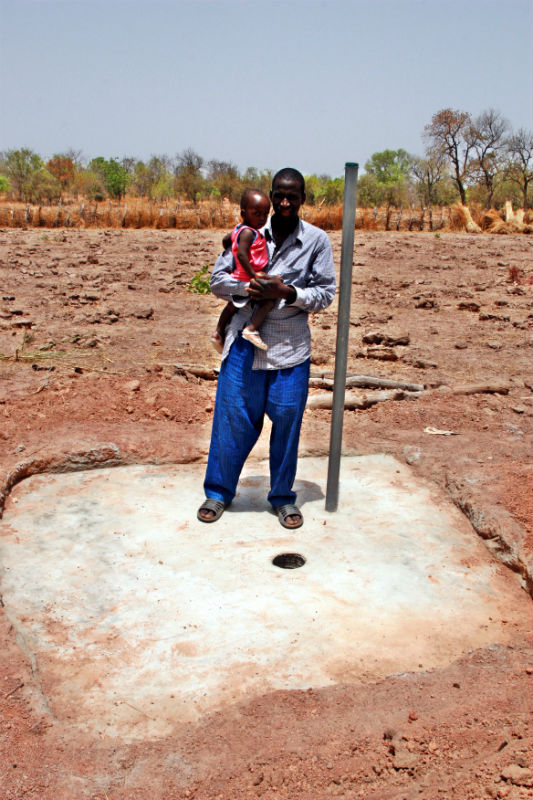This project has been completed under the direction of Peace Corps Volunteer Rachael Honick.
To read about the beginning of the project, CLICK HERE.
The project was to build 10 latrines in the Sarre Fuuta section of the village of Coumba Diouma.
Rachael reports:
This was a follow-up project to the Coumba Diouma Latrine Project. Prior to the completion of that project, there was only one cement-reinforced latrine in the entire community of Sarre Fuuta, a subsection of the village of Coumba Diouma, a village with a population of about 325 people. Consequently, people would use the woods or fields or go behind their huts, as there was no other option. They would not bring water or soap with them and, as a result, sanitation-related diseases spread quickly throughout the population, especially among children.
After building 10 new USAID-approved pit latrines for the prior project, it was clear that the rest of the village needed to be covered as well. As a follow-up, the organizational side of the Sarre Fuuta project was in place and all that was needed was the funding to execute the program.
The Latrine Committee again oversaw the implementation of this project. This included collecting the community contribution of 2 million fCFA per latrine, pre-digging pits, and having sand and water for the cement mixture next to their pit site for the mason to access easily.
The materials were again purchased and transported to Sarre Fuuta with the help of a local NGO which provided a truck and chauffeur free of charge as it did for the Coumba Diouma Project. We again had enough money to buy materials for 10 latrines, including the cost of the mason.
Since this was a follow-up project, the Latrine Committee and I had a much better understanding of how to properly execute the program. Things went much more smoothly this time around and we were able to work out any problems with greater ease. Once we had the materials, we build ten latrines in ten days!
Just like the Coumba Diouma Latrine Project, education about proper maintenance and basic hygiene were emphasized, including hand washing demonstrations with skits done by children on why using a latrine is important and how to properly wash hands with soap and water every time.
Upon completion of the project, I talked to a friend, Diouma Camara, an older woman living in Sarre Fuuta. Before this project, her cement-lined latrine had collapsed and she was unable to use it because she did not want to fall into her pit. As a result, she would walk to her cornfield and go to the bathroom there. As soon as she heard about the Sarre Fuuta project, she jumped right on board. She was the first person to hand in money and have her pit dug. Her new latrine is sturdy and enforced with a rebar to make sure it will not collapse like the old one. She said she is grateful for the new latrine and happy she can go to the bathroom in a clean, safe and private place.
Thank you for your support. We now have around 2/3 of the community living in Coumba Diouma covered with sturdy new latrines. I hope that I will be able to cover the entire community with cement latrines before my service ends in May.
We wish to thank Rachael for completing this project, and again extend our gratitude to The Soneva SLOW LIFE Trust for providing the funding.

